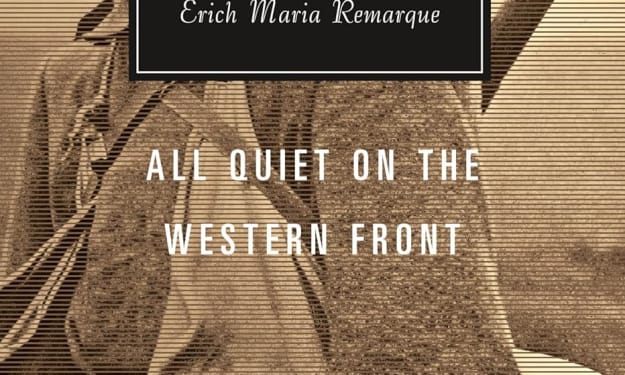Six Books I Love
Books That I Love and the Reasons Why

I recently got tagged in a Facebook challenge to post the covers of six books I loved without any commentary. I love challenges like that; they remind me of all the wonderful books I've read over the years. Narrowing it down to six was tricky! But here are the six I chose and the reasons why.
1.) 'Tess of the d'Urbervilles' by Thomas Hardy

Image Credit: Tess, dir. Roman Polanski, Columbia Pictures, 1979
If you're looking for a sunshiney, smiley novel to cheer you up on a rainy day, then Tess of the d'Urbervilles is not for you. In fact, most of Thomas Hardy will not be for you! Motivating the misery in this novel is a story of bad parenting, naivety, sex, and class. When John Durbeyfield discovers that his family represents the last roots of the illustrious d'Urberville family, he sends his daughter Tess to the d'Urberville house in order to claim kin and any monetary aid she can squeeze out of them. Beautiful Tess impresses and ends up with a job, but her stay with the d'Urbervilles is the start of her troubles. Hardy puts Tess through hell, but there is some respite in his wonderful descriptions of life in the English countryside.
2.) 'The Collector' by John Fowles

Image Credit: The Collector, dir. William Wyler, Columbia Pictures, 1965
If you like your reading material dark and unsettling, treat yourself to a copy of this one. When Frederick Clegg becomes rich after winning the pools at work, he does what any respectable person would do and buys a house in the middle of nowhere with a great cellar. He carpets the cellar, fills it with art books and clothes, and installs a kitchen in the next room so no one will see him taking food out. Who's it all for? The art student he's kidnapped! It's amazing how unassumingly creepy this novel is and it always catches me off guard whenever I re-read it. Like Tess, class plays a big role in the narrative. But unlike Tess, you will not believe how things spin out!
3.) 'Austerlitz' by W.G Sebald

Image Credit: Austerlitz, W.G Sebald, pub. C Hanser, 2001
In my final year of university, I took a course on trauma literature and spent six weeks looking at Holocaust and 9/11 literature—fun! Austerlitz was on that course and it's one of my favourite university texts. In it, our nameless narrator recounts his friendship with a man called Austerlitz. It's a friendship based on chance encounters and long conversations about Austerlitz's past which has been haunted by the loss of his parents during World War Two. Austerlitz is a stunning novel which is as complex and multifaceted as the trauma it chronicles. Sebald uses photographs, footnotes, and monstrously long sentences to make this a rewardingly challenging read.
4.) 'Frankenstein' by Mary Shelley

Image Credit: Frankenstein, dir. James Whale, Universal Pictures, 1931
It's a classic for a reason! You know the story; when Victor Frankenstein's experiment goes horribly right, it has consequences that he could never have anticipated and is certainly not psychologically equipped to deal with. What I really love about this novel is the way that Shelley uses setting. From the Arctic wastes described by Captain Walton in the framing narrative to the mountains where the Creature tells Frankenstein his story, to the perfect isolation of the Scottish Hebrides where Frankenstein must build his second Creature—it's atmospheric, dramatic and perfectly suited to the dark nature of this story.
5.) 'Jurassic Park' by Michael Crichton

Image Credit: Jurassic Park, dir. Steven Spielberg, Universal Pictures, 1993
Now who doesn't love a dinosaur? Especially when they're the star attraction of an innovative and ambitious theme park where everything is automated to the highest standard and where nothing could ever possibly go wrong. Right? If you've not read this before, then you can expect all the fun of the movie with a healthy helping of science and fascinating discussion of the implications of genetic technology. There are also some cool scenes that didn't make it into the movie, including a tense bit with a sleeping T-Rex and a bit where Alan Grant has to play poison dino egg bowling with a bunch of angry velociraptors!
6.) 'From Hell' by Alan Moore and Eddie Campbell

Image Credit: From Hell, Alan Moore and Eddie Campbell, pub. Knockabout Comics, 1999
It's a graphic novel about Jack the Ripper. But what makes it such an accomplishment is that it's so much more ambitious than that. Now a warning to my fellow Ripperologists out there; Moore and Campbell are not presenting a credible theory here, and they know that. But From Hell is not about presenting a theory and that's where the ambition comes in. It's about putting the murders into a bigger historical context. The Ripper does not just murder Mary Kelly; he opens the door to all of modern history's future atrocities. It's an amazing feat that you should check out if you are interested in either Jack the Ripper or graphic novels.
About the Creator
Harriet Christabel
Harriet Christabel is a writer living in Scotland. When her depression and anxiety let her, she enjoys knitting, reading, a good mystery and true crime.
Enjoyed the story? Support the Creator.
Subscribe for free to receive all their stories in your feed. You could also pledge your support or give them a one-off tip, letting them know you appreciate their work.






Comments
There are no comments for this story
Be the first to respond and start the conversation.